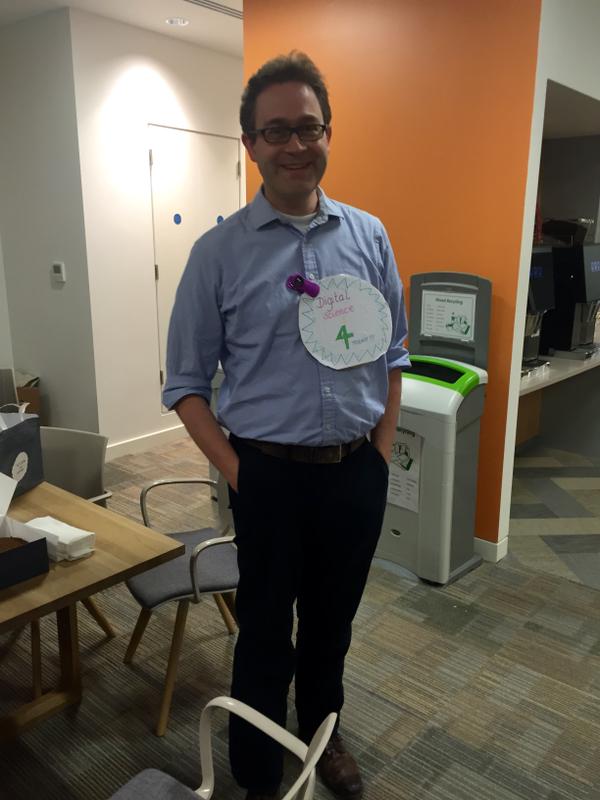Subscribe to our newsletter
Happy 4th, Digital Science
Yesterday, Sunday 7th December, was Digital Science’s 4th birthday. So if you’re a binary geek like me, we’re now officially 100 years old!
Yup, it’s only been four short years since we welcomed our first entrepreneurs into the fold and threw our virtual doors open to the world. It’s sobering to reflect on how much has changed in just the last year. Back at the beginning of 2014 I took part in a Reddit ‘Ask Me Anything’ (and coincidentally I’m doing another one this Thursday, so my year will be book-ended by AMAs). If I’m being honest, we had yet to really make our mark, and I wondered whether one of the questions wouldn’t be “Who the hell are you?” In the event it was a much more polite and constructive discussion than that, and I left buoyed up by the high level of interest in software for science — a field that you can either view as a niche within a niche or (as I prefer) the confluence of two great domains of geekdom that have come to define the modern world.
And yet I couldn’t help feeling that we needed to spread our message wider, excite more people about the possibilities of what we’re doing, and get our software into the hands of more researchers. I like to think that on those fronts the past year has been something of a success.
There’s nothing like a big giveaway to grab people’s attention, and last December, just days after our 3rd birthday, we announced that we were donating data for over 15 million chemical structures to EMBL-EBI, emphasising our desire to not just talk about such things but to truly walk the open data walk. And with our Protovision concept video about a potential lab of future we succeeded in stimulating people’s imaginations sufficiently to have received some enquiries about where they could buy the product. (Our answer: “We’re working on it.”)
Come the spring it was the turn of one of our most recently arrived teams, ÜberResearch, to steal the limelight by winning an award for their information visualisation work, and also releasing a ‘funding wizard’ application for use with ORCID. They promptly gave their info viz prize away in a competition that sought to get PhD students thinking creatively about novel uses for science funds. (I was one of the judges and it succeeded gloriously in this aim.) All this before ÜberResearch had even launched their first commercial product: Dimensions, the world’s most comprehensive database of awarded grants data, which came out in September, is already being adopted by funders and universities around the world, including smaller funders, who benefit from a free access programme.
Not to be outdone, figshare, our online service for managing and sharing research data, announced a collaboration with Github that enabled it to accept code too (after all, as Alan Turing taught us, code is data). A short time later Figshare was Wired‘s Startup of the Week. And a couple of months after that Altmetric released their new service for institutions, providing research organisations with a way to measure in near real time the attention being paid to their publications.
All this is to say nothing of our more established products, such as Symplectic Elements (which has forged a groundbreaking collaboration with the VIVO initiative), Labguru (which is now expanding into new domains – stay tuned for a big announcement on that front) and BioRAFT (which continues to extend its thought-leadership in lab safety and training). They all continued their rapid expansion across the campuses and research laboratories of the world. Or our newest arrival, writeLaTeX, whose collaborative authoring tool, Overleaf, has already become a poster child for new online-enabled ways of doing science.
Then there are the events that Digital Science helps to organise: Science Foo Camp, 1:AM, Women in Science, SpotOn and Shaking It Up, to name a few. And our other thought-leadership activities, from Digital Research Reports to providing advice to politicians and rich data analyses to governments.
We rounded off the year with last week’s Nature-ReadCube content-sharing announcement, a development that has really made the world sit up and take notice.
So as I await my second Reddit AMA, this time on the subject of nature.com content sharing, I’m a bit less concerned that no one will have heard of us but every bit as excited about the prospect for great software to change for the better the way that research is done. Roll on 2015 and birthday number five.



